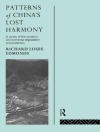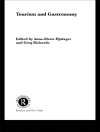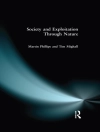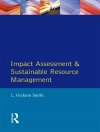The capabilities of modern technology are rapidly increasing, spurred on to a large extent by the tremendous advances in communications and computing. Automated vehicles and global wireless connections are some examples of these advances. In order to take advantage of such enhanced capabilities, our need to model and manipulate our knowledge of the geophysical world, using compatible representations, is also rapidly increasing. In response to this one fundamental issue of great concern in modern geographical research is how to most effectively capture the physical world around us in systems like geographical information systems (GIS). Making this task even more challenging is the fact that uncertainty plays a pervasive role in the representation, analysis and use of geospatial information. The types of uncertainty that appear in geospatial information systems are not the just simple randomness of observation, as in weather data, but are manifested in many other forms including imprecision, incompleteness and granularization. Describing the uncertainty of the boundaries of deserts and mountains clearly require different tools than those provided by probability theory. The multiplicity of modalities of uncertainty appearing in GIS requires a variety of formalisms to model these uncertainties. In light of this it is natural that fuzzy set theory has become a topic of intensive interest in many areas of geographical research and applications This volume, Fuzzy Modeling with Spatial Information for Geographic Problems, provides many stimulating examples of advances in geographical research based on approaches using fuzzy sets and related technologies.
Jadual kandungan
Reasoning About Regions, Relations, and Fields.- Fuzzy Reasoning about Geographic Regions.- Combined Extraction of Directional and Topological Relationship Information from 2D Concave Objects.- Field Based Methods for the Modeling of Fuzzy Spatial Data.- Modeling Localities with Fuzzy Sets and GIS.- Fuzzy Classification.- Mining Weather Data Using Fuzzy Cluster Analysis.- Modelling the Fuzzy Spatial Extent of Geographical Entities.- Multi-Dimensional Interpolations with Fuzzy Sets.- Talking Space — A Social & Fuzzy Logical GIS Perspective On Modelling Spatial Dynamics.- A Valuation of the Reliability of a GIS Based on the Fuzzy Logic in a Concrete Case Study.- Fuzzy Representations of Landscape Features.- Fuzziness and Ambiguity in Multi-Scale Analysis of Landscape Morphometry.- Fuzzy Representation of Special Terrain Features Using a Similarity-based Approach.- Decision Making with GIS and Fuzzy Sets.- Spatial Decision-Making Using Fuzzy Decision Tables: Theory, Application and Limitations.- Spatial Decision Making Using Fuzzy GIS.- Spatially Explicit Individual-Based Ecological Modeling with Mobile Fuzzy Agents.












